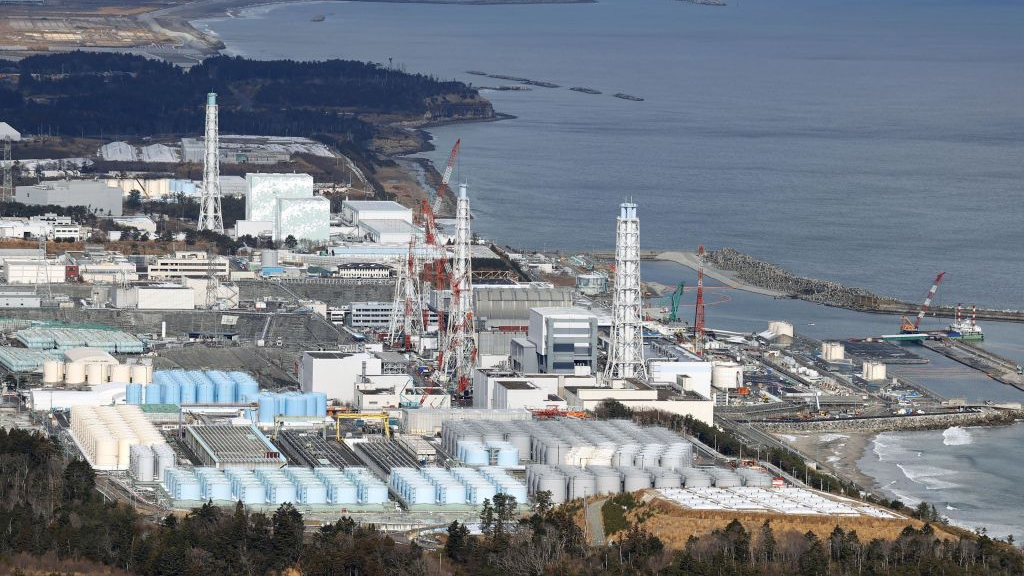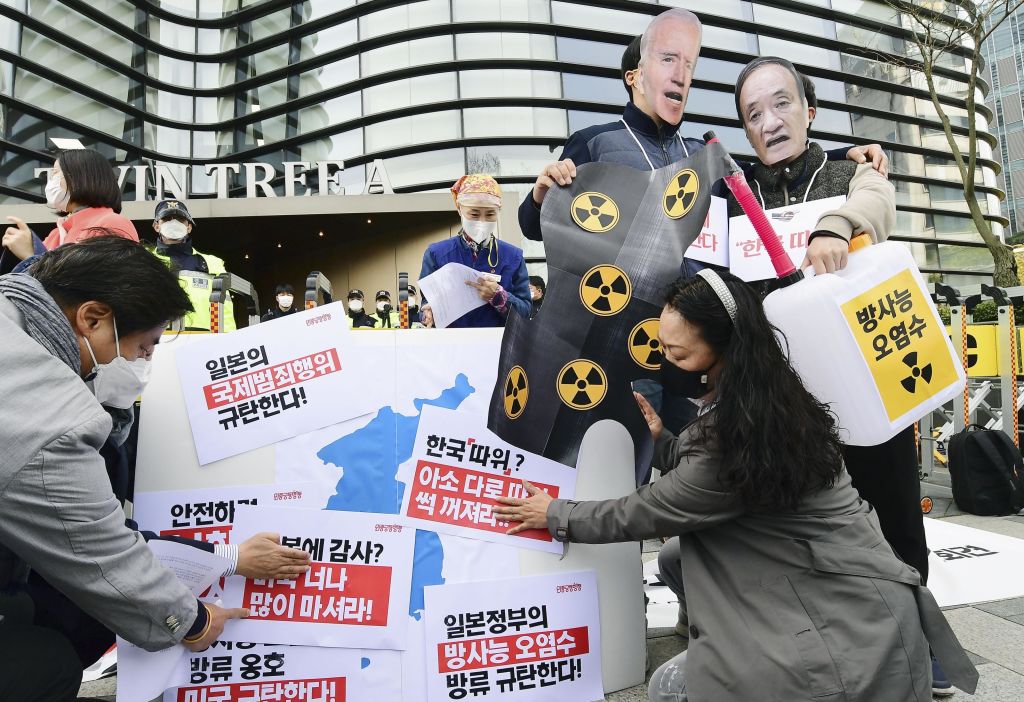
Tanks storing treated radioactive water on the premises of the Fukushima Daiichi nuclear power plant, January 8, 2021. /Getty
Tanks storing treated radioactive water on the premises of the Fukushima Daiichi nuclear power plant, January 8, 2021. /Getty
Editor's note: Zhou Wenxing is a research fellow at Huazhi Institute for Global Governance, Nanjing University and former Asia Fellow at John F. Kennedy School of Government, Harvard University. The article reflects the author's opinions, and not necessarily the views of CGTN.
The Japanese government announced on April 19 that black scorpion fish in Fukushima waters were banned from entering the market due to the detection of excessive radioactive materials. This was the first such action by the government since restrictions on marketing seafood in tsunami-crippled Fukushima waters were completely lifted last February.
It should be noted that the Japanese government placed the ban on seafood in the same week that it decided to discharge Fukushima contaminated water into the sea. In consideration of warnings from a majority of experts against the potential impact of the treated water, governments and people in many neighboring countries as well as some international organizations, including the United Nations and Greenpeace International, have expressed widespread discontent and deep concerns about Japan's decision.
Nevertheless, the ban indicates that the concerns shared by people inside and outside Japan about the government's ill-considered decision to dump radioactive water into the ocean are not groundless. It confirms, to a large extent, that the processed water at Fukushima does bring damage to the DNA of some organisms in nature and beyond.
In comparison with the strong opposition by the Chinese mainland and South Korea among others to Japan's latest decision, however, the Democratic Progressive Party (DPP) authorities of the Taiwan region held a more moderate position on the issue.

People rally in front of the Japanese Embassy to protest against the Japanese government's decision to release treated but still radioactive water from the crippled Fukushima Daiichi nuclear power plant into the sea, in Seoul, South Korea, April 15, 2021. /Getty
People rally in front of the Japanese Embassy to protest against the Japanese government's decision to release treated but still radioactive water from the crippled Fukushima Daiichi nuclear power plant into the sea, in Seoul, South Korea, April 15, 2021. /Getty
In the face of growing pressure from Taiwanese people, opposition parties and environmental groups, Xavier Chang, spokesman of the DPP authorities, just responded at a daily briefing with "concerns" about Japan's decision to release radioactive water. But Chang's weak response just turned out to trigger much more scathing attack. Some senior members of the largest opposition Kuomintang Party (KMT) criticized the Tsai Ing-wen authorities for being "inevitably soft when facing Japan," requiring them to "speak loudly in protest."
Some controversial remarks pertaining to the Fukushima issue by Frank Hsieh, the so-called Taiwan region's "representative" in Japan, invited more attacks. To many people's surprise, Hsieh agreed with Japanese Finance Minister Taro Aso's comment that treated water from Fukushima is "drinkable." He even compared the operations of discharging radioactive water into the sea by the Taiwan region with that by Japan, suggesting that it is safe for the Japanese government to dump nuclear-contaminated water into the ocean.
But people should not feel strange about these responses by the DPP authorities if they spend a little bit of time reviewing their policies concerning relevant issues.
Long a political problem both inside the island of Taiwan and outside with the U.S., the issue of imports of U.S. beef and pork containing ractopamine, an additive that enhances leanness, is the most recent and relevant case in point.
Due to the strong opposition from Taiwanese people and the-then opposition DPP, the KMT authorities of Ma Ying-jeou resisted pressure from the U.S. and refused to import its additive-fed meat. But after Tsai Ing-wen and her DPP colleagues were elected as the new leadership of the island, the Taiwan authorities' policy on U.S. meat came to a turning point.
The Tsai authorities announced they were lifting U.S. beef and pork restrictions from September 2020 after their August meetings with the visiting Alex Azar, U.S. Secretary of Health and Human Services. Easing U.S. beef and pork import restrictions is an "important start for economic cooperation" with the U.S., Tsai said after her decision to import U.S. meat, adding that it also could boost the island's ties with the U.S.
The DPP authorities could do anything to show their loyalty to the U.S. and Japan so as to seek firm commitments from the latter to "protect" the island of Taiwan from being "threatened" by the mainland. It seems that as the regional leadership of the island, they never put the Taiwanese people first. Rather, they put the U.S. and Japan first, ironically.
Both the issue of Fukushima nuclear-contaminated water and imports of additive-fed U.S. meat have nicely demonstrated that the DPP authorities are ready to adjust any policy if only Japan and the U.S. find it necessary, regardless of whether the Taiwanese people feel satisfied or not.
Essentially, so long as the DPP authorities do not forsake their attempt to detach from the Chinese mainland, they will always be soft and weak on issues related to the U.S. and Japan particularly, whom they are begging for so-called support to balance against the mainland.
(If you want to contribute and have specific expertise, please contact us at opinions@cgtn.com.)

